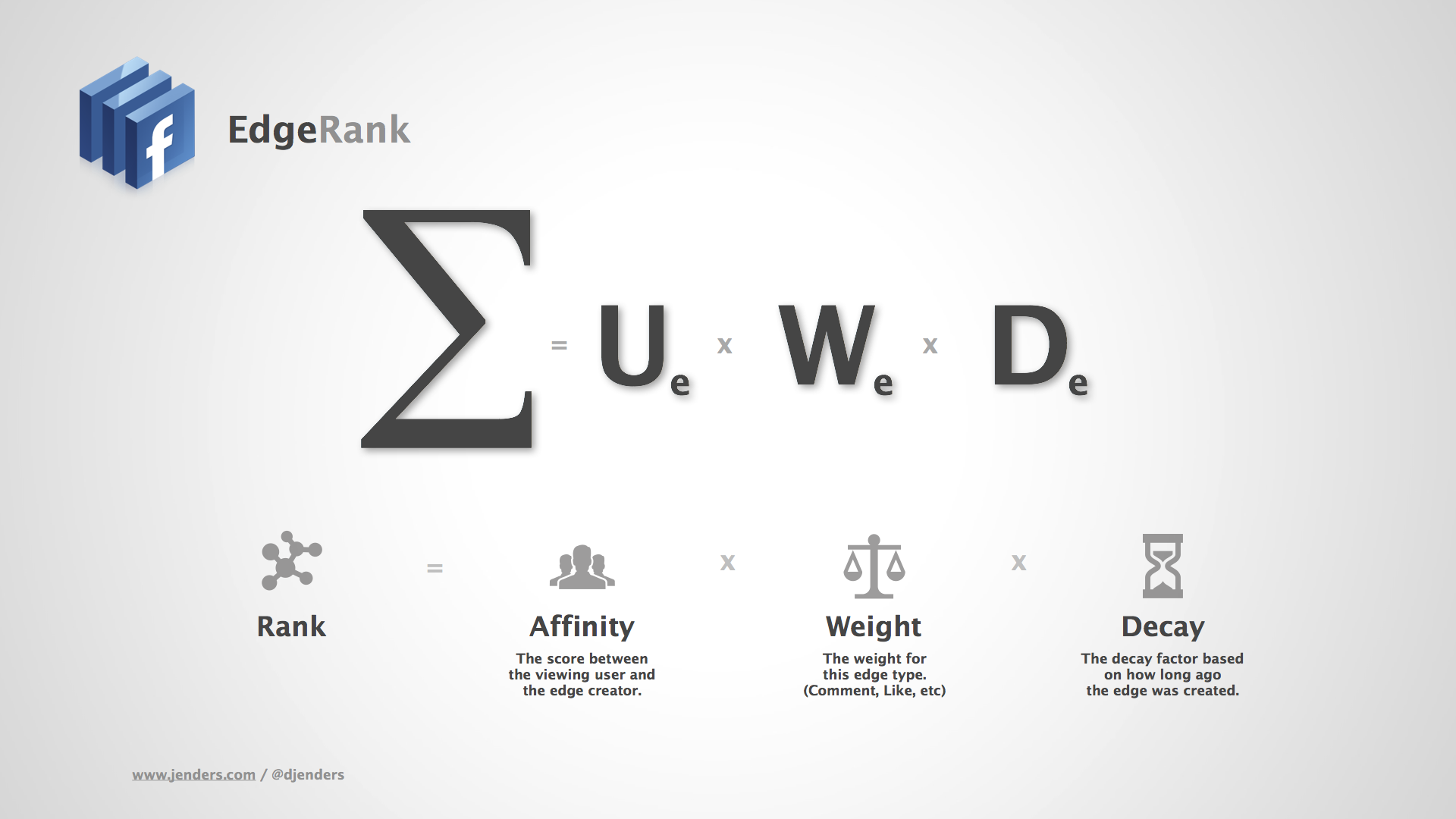In Defense of the Facebook Algorithm
There's been much written about how Facebook's algorithm changes have forced marketers into a "pay-to-play" scenario to get their content seen. Reach of brand organic posts keeps slipping by the week and it has become harder and harder to get your content seen. What can marketers do?
Get over it.
Seriously though, I get it. I'm an agency guy that helps clients navigate social strategy. There are few things more frustrating than showing decreased reach metrics to your client after you've done everything in your power to show growth. It gets old having to say "well...Facebook changed its algorithm again" in meetings. I'm sure you may have been in the same boat.
Marketers, bloggers and community managers alike have voiced negative opinions, calling the situation a "bait and switch." I can understand that position but it's a slightly flawed one. Facebook has and always continues to be a "rental" space for brands. That has never changed. We'll always have to play by the rules of their game - and always will. It's the price of admission to engage their huge base of users.
Did marketers waste money acquiring fans?
Many brands have complained, saying that they've spent all this money to acquire fans and now they can't reach those fans. While I sympathize with those voices, I wouldn't call fan acquisition a waste of money.
Let's say a fan page had 5,000 fans and spent money to acquire 10,000 fans. However, the average organic reach may have slipped from 10% per post to 4% reach per post. 4% of 10,000 still reaches more than 4% of 5,000 fans. Sure, it's not ideal but still reaches more people than you would have otherwise. Few people look at the numbers this way.
Users - not brands - have to be Facebook's priority.
Facebook is a publicly traded company, meaning they have to make money to keep their shareholders happy. The way it makes money - selling advertising products to brands. It's easy to stop there and think "without our money, there would be no Facebook." That's only half true.
Facebook would be worth nothing without users.
Facebook became popular for brands because they had a lot of users to reach. Its value has been in the 1 billion users that log into the site and create/consume content every day. Facebook knows this - and has to keep the user experience top-of-mind. If users see a lot of brand content they don't want to see, they'll be less likely to go to Facebook. Nobody really logs in to see marketing messages from brands. It's easy to become jaded as a marketer and forget that.
If Facebook turns off their users, they lose the most valuable product they have to sell to marketers.
Is filtering content the answer?
It has to be. There are more users. Those users are liking more and more pages. Facebook could take the Twitter approach and show all the content in real time. That is the approach many brands want - but it makes a Facebook post as valuable as a tweet. There's no guarantee of engagement.
While it's far from perfect, Facebook's algorithm is designed to deliver content to users that they care about. If brands want in on that conversation, Facebook is totally open to it. They're just asking brands to pony up and pay them. Brands don't own the users, Facebook does. Brands are just having to rent time.
Are Facebook ads a waste of money?
Not at all. If you have great content, it's an incredibly effective advertising spend.
Brands spend money on banner ads all over the internet. In promoted posts, Facebook offers an ad that users could actually share. Some ad products even have validation from users' friend networks, saying "hey, two of your friends like this and we think you may too."
You can pay Facebook $_____ to reach $______ amount of people. However, if you have great, engaging content, you could have a lot of additional "earned" media that you may not have received before.
Facebook should work on transparency
If Facebook needs to work on anything, it's additional transparency on how their algorithm works and more of a "heads up" before they decide to change anything. Being more open about their changes and at least feigning that brands are a priority will go a long way. It'll prevent many of us from feeling like victims of a bait and switch down the road.
Facebook is far from a perfect system - but it's still a great spot for brands to be. For now.
What can you do now? There's an amazing resource from Jason Falls over on Social Media Explorer. It's a great place to start on how to best navigate Facebook changes.
